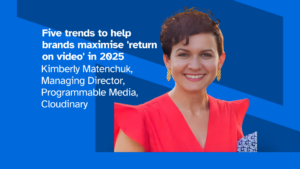By Hugh Stevens, UK MD, LiveRamp
Brands have become increasingly aware of the gold-dust-like value of first-party data. However, not all businesses have access to it. As a result, there is a rising hunger for collaboration with partners who do. For example, LiveRamp’s research sheds light on the eagerness of brand marketers to engage in data collaboration, with 60% stating that they are collaborating with retail media providers and 42% utilising first-party data in their media strategies.
Retail media networks having skyrocketed in popularity over the past 12-24 months is further evidence of this appetite for collaboration from both brand-side marketers and retailers, underscoring a shift towards a mutually beneficial partnership. As marketers enthusiastically engage with data collaboration, they should be aware of navigating certain nuances.
Overcoming collaboration challenges
Indeed, LiveRamp’s research also uncovered a number of challenges that marketers cited when it comes to data collaboration. These include a lack of standardisation in practices, resistance to data sharing, a need for expertise, and a scarcity of first-party data.
Solving these cited issues, which apply to retailers looking to establish their own media networks too, requires a collective effort, addressing internal data silos, and forging external partnerships. Educating on the nuances of data collaboration, both within organisations and externally is crucial, not only to foster better-informed decision-making, but facilitate a seamless customer journey.
Driven by people
For one, members of the team with specific skills and knowledge related to data collaboration should be championed and encouraged to evangelise the importance of working together between departments. Encouraging collaboration between departments and addressing in-house data silos is important, as they can result in inefficiency, lost opportunities and impaired collaboration within businesses.
Externally, strategic partnerships with third parties are instrumental, as solutions can enable privacy-first data collaboration both within and outside company walls. To ensure alignment, brands are beginning to appoint retail media directors to oversee that budgets remain flexible, while utilising data insights in order to facilitate collaboration and enable brands to derive, utilise, and measure insights.
At the heart of any data collaboration strategy lies first-party data. This asset holds enormous value for brands, enabling them to better understand customers and only interact with them in the most personalised and relevant way.
A strong value exchange provides the cornerstone of capturing this first-party data from consumers. i.e., unless the brand maximises the value that their schemes offer in finely-targeted and meaningful ways – earning the right to be in shoppers’ wallets – consumers aren’t going to be as open and trusting around handing over their personal information.
These profiles ensure that brands can better segment their audiences and only reach consumers with the campaigns they’re most likely to resonate with. As a result of effectively executed data collaboration, brands will see a significant boost in their campaign effectiveness.
A case in point is Boots, which was able to increase its targeting using first-party data from 7% to 60% in just three years, thanks to the value exchange offered through its Advantage Card loyalty programme.
Partnership-led future
Brands can put themselves in an incredible position to form strong data-led partnerships by adopting the right strategies and solutions. If done correctly, data collaboration can provide a basis for improved campaign effectiveness, enhanced measurement, and the potential for brand growth through the opening of additional revenue streams.
Tackling the obstacles around data collaboration, and harnessing democratised first-party data, will put brands in good stead to prosper in the rapidly evolving market. There’s no better time than now to begin to embark on data collaboration, educate the business and set it up for success in 2024.
*LiveRamp is a client of Bluestripe Communications, owned by Bluestripe Group, publisher of NDA









